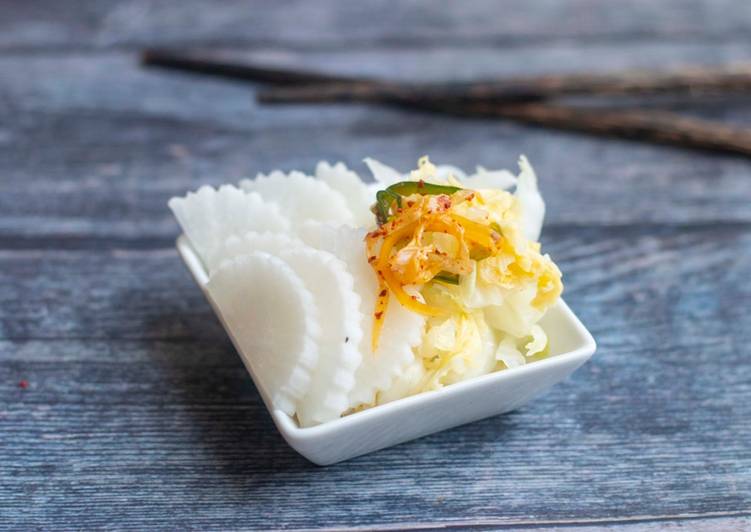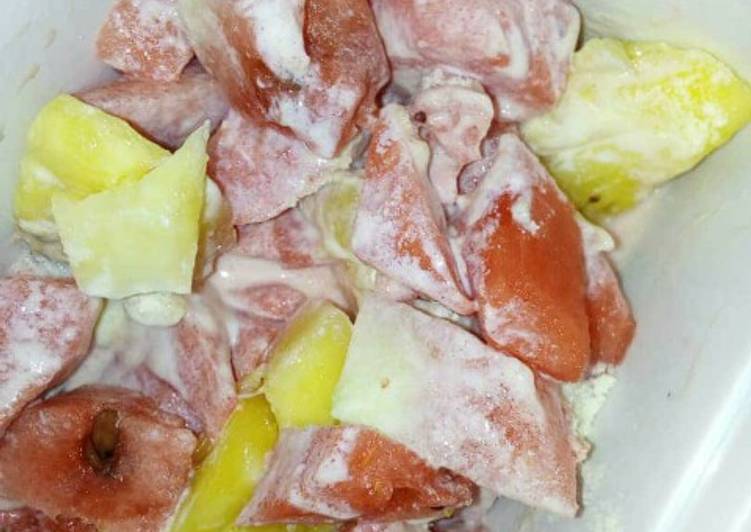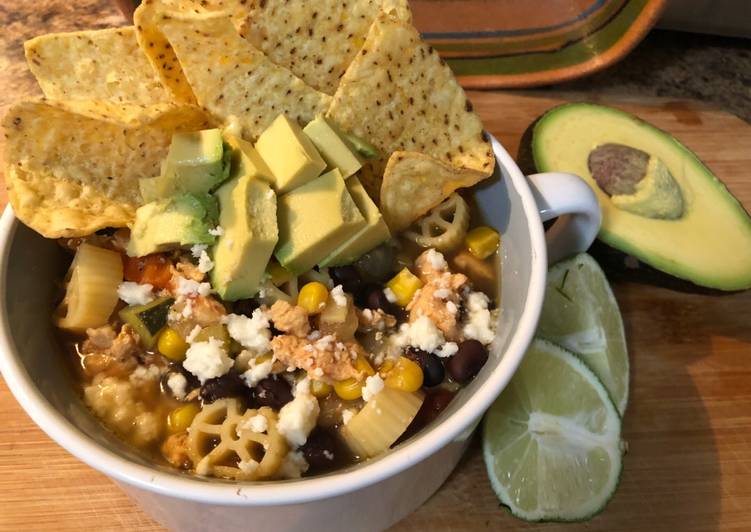
Hello everybody, I hope you are having an amazing day today. Today, I’m gonna show you how to make a distinctive dish, vegetable pickles or tsukemono. It is one of my favorites. For mine, I will make it a little bit unique. This is gonna smell and look delicious.
Japanese pickles—known collectively as tsukemono—can easily go unnoticed as part of a washoku (traditional Japanese) meal. Yet they've rightfully earned their place as a cornerstone food because they serve an important purpose: Japanese food culture is heavily influenced by principles of balance. Japanese Pickles or Tsukemono (漬物) are a delicious way to preserve vegetables.
Vegetable Pickles or tsukemono is one of the most well liked of recent trending foods on earth. It’s appreciated by millions every day. It is simple, it’s fast, it tastes delicious. They’re fine and they look wonderful. Vegetable Pickles or tsukemono is something which I’ve loved my entire life.
To begin with this recipe, we have to prepare a few components. You can have vegetable pickles or tsukemono using 9 ingredients and 6 steps. Here is how you can achieve that.
The ingredients needed to make Vegetable Pickles or tsukemono:
- Make ready 1 Daikon or Mooli
- Make ready 1 chinese cabbage
- Take Vinegar mixture per 1 vegetable
- Make ready 1/2 cup sugar
- Prepare 3/4 cup white vinegar
- Get 1 lemon
- Take 1 cup warm water
- Make ready Pinch sea salt
- Get 1-2 big red chilli (optional)
The vegetables are preserved in a brown pungent mash of roasted rice bran (Nuka. Tsukemono pickles actually means pickled foods and can refer to a wide assortment of both vegetables and fruits, as well as seaweed. Made using either a salt or vinegar brine or a more involved fermentation process, Japanese pickles, referred to as tsukemono, are comprised of more. Tsukemono (漬物, literally "pickled things") are Japanese preserved vegetables (usually pickled in salt, brine, or a bed of rice bran).
Steps to make Vegetable Pickles or tsukemono:
- Use one daikon. Peel the skin off.
- Cut them into long chunks. Place them in a big container.
- To make pickling marinade. Combine sugar, salt and vinegar until the sugar dissolves. (You can add chilli at this at
- Add some lemon and mix all.
- Pour the pickling marinade sauce in to the daikon. Cover with lid. Leave it over night at room temperature. Ready to eat after 6 hours or the next day.
- Do the same method with chinese canbage but cut your cabbage vertically.
They are served with rice as an okazu (side dish), with drinks as an otsumami (snack), as an accompaniment to or garnish for meals. Pickled Vegetables - Tsukemono Tsukemono, or Japanese pickled vegetables are a trademark snack or rice accompaniment found in all Japanese I've gotten into pickling lately; Korean pickles, pickled daikon, cucumber pickles and cucumber kimchi (spicy!), enjoying the simplicity and ease of. Nukazuke, pickling vegetables in fermented rice bran. Another major ingredient used for making pickles is rice bran or nuka (糠). This of course is what is polished off rice grains Another category of pickle is the dried vegetable pickle.
So that’s going to wrap this up for this special food vegetable pickles or tsukemono recipe. Thanks so much for reading. I am confident you can make this at home. There is gonna be more interesting food in home recipes coming up. Don’t forget to save this page in your browser, and share it to your loved ones, friends and colleague. Thanks again for reading. Go on get cooking!


